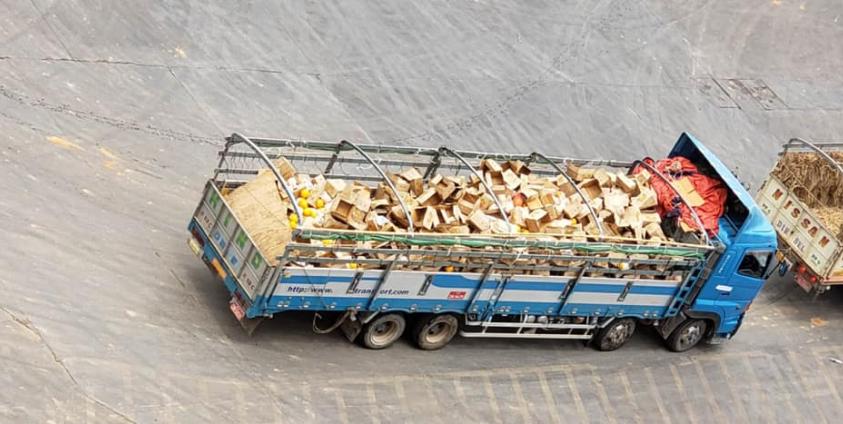NANG SENG NOM — Traders are upset that their lorries carrying fruit over the border sit for days while Chinese border guards carefully inspect every vehicle, said Sai Khin Maung, the chairperson of a fruit wholesalers association in Muse.
They lost between 3 million kyat (est. US$2000) to 4 million kyat (est. US$3000) for each truck in the last week alone. At this point “they can’t even cover their transportation costs.”
It takes too long to cross the border, Sai Khin Maung explained, and Burmese drivers aren’t allowed to enter China, which means they need to wait for Chinese nationals to drive them to their final destinations. “They don’t know how to drive the trucks from Burma and they’ve damaged some of them.”
Sai Khin Maung said China only allows 300 trucks to cross the border a day, and it’s causing pile-ups at the border. Sometimes there are more than 1,000 trucks at a time parked at the 105-miles trading zone in Muse. Burmese border guards aren’t restricting the numbers of Chinese trucks crossing the border, he said.
Sai Myint Bo, a wholesale fruit trader, said his drivers sometimes wait for 3-6 nights to cross the border, and by then all his fruit is rotten.
The border between Burma and China has been closed since April 1. The lockdown has been hard on businesses in Muse dependent on trade with China that has been reduced since the novel coronavirus first emerged.
Globally, more than 4.5 billion people—over half the world’s population—are practising some form of social distancing to reduce the transmission of COVID-19 that was officially announced in China at the end of last year.







